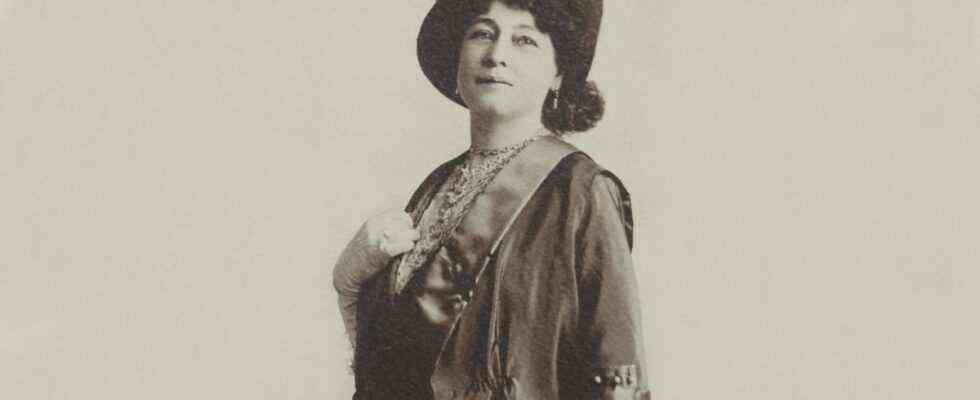She made her very first film in 1896, a year after the invention of the cinematograph. “La fée aux choux” is the name of the almost one-minute work in which, as the “Kohlfee”, she pulls small babies out of huge cabbages. As if she were already anticipating the creative potential, all the ideas and wonders that in the future she will elicit from the devices and dummies of the newly created art form and present to a steadily growing audience. As a director, screenwriter, producer and studio manager, in countless films. Her name: Alice Guy-Blaché, the first woman behind the camera. Of which very few have heard of so far.
Something should change now, thanks to the portrait that American filmmaker Pamela B. Green dedicated to her. “Be Natural – Be yourself: The film pioneer Alice Guy-Blaché” was screened at the Cannes Festival in 2018 and documents Guy-Blaché’s life and work. The fact that Guy-Blaché’s importance has been ignored for so long is largely due to the fact that film history was not only dominated by men, but also written by them. However, women were there from the start, in central positions.
It fell into oblivion because not only films, but also film history is mainly written by men
She was born near Paris in 1873 and began her career as an assistant to Léon Gaumont, who was then still an authorized signatory in a photography company that soon went bankrupt. The two attended one of the first screenings of the Lumière brothers. She then persuaded her boss to use the new medium for storytelling – as in the film with the Kohlfee – and thus laid the foundation for the later Gaumont film empire that still exists today.
Guy-Blaché quickly became the production manager at Gaumont before she moved to the USA with her husband, a cameraman, and founded her own studio there, the “Solax”. At the beginning of the 20th century, the east coast, not Hollywood, was the center of the American film industry. Guy wrote, produced, and directed over a thousand films, mostly comedies, musicals, and westerns – most of which are lost.
In her films she addressed anti-Semitism, immigration, the situation of workers, child abuse – and time and again the role of women. At some point, economic problems increased. Her husband left her and went to Hollywood, she moved back to France with the children, but could no longer find a job. The aged Léon Gaumont, who had become rich not least thanks to her, also dropped her. It does not even appear in the Gaumont annals of that time. Film historians such as Georges Sadoul and Jean Mitry attribute many of their works to other (male) directors.
Alice Guy-Blaché during filming.
(Photo: Filmperlen Verleih)
For the rest of her life, Guy, who died in 1968, fought for historical recognition of her achievements. Fifty years after her death, documentary filmmaker Green continues this fight. Like a lawyer before the tribunal of film and media history, she sets a huge machine in motion that presents new evidence of the importance of her client. Prominent witnesses are called: Peter Bogdanovich, Julie Delpy and Ava DuVernay comment in front of the camera, Jodie Foster tells from the off. Meanwhile, the images and information rush past you, as if Green wanted to open all the archives at once and hurl their contents at the audience. Old interviews with the artist and her daughter, excerpts from her films and other recordings from the past are mixed up with numerous digital animations that illustrate the context of film history and all the research steps of the film team.
This often seems a bit overloaded with effects, as if Marvel had accidentally produced an Arte documentary. On the other hand, Green does not seem to assume that you will inevitably watch her documentary “in one piece”, that is, in the cinema. The overloadedness of the film makes it more of an archive, which is best studied on the computer for maximum gain of knowledge, where you can scroll back and forth on the timeline of the film and thus in the biography. Green’s contribution always inspires the desire to rediscover Alice Guy-Blaché.
Be Natural – The Untold Story of Alice Guy-Blanché, USA 2019. – Directed and written by: Pamela B. Green, Joan Simon. Film pearls, 103 minutes. In the cinema.

